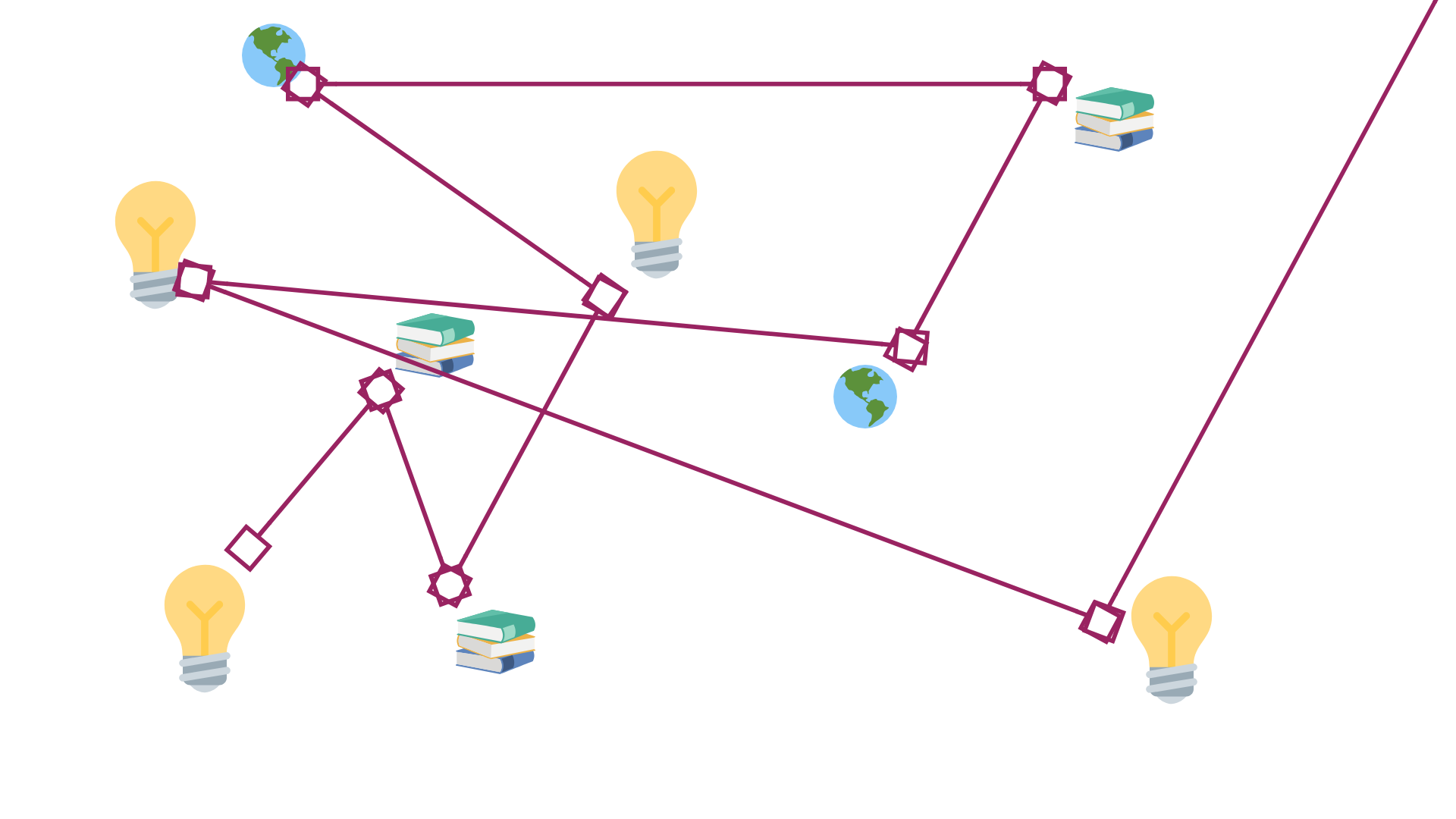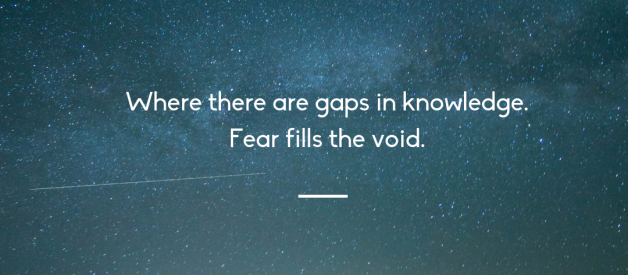The world of self-learning can be a little daunting. However, if we want to achieve our aspirations and stay relevant in an ever-changing world, self-learning is critical to us in the 21st Century.
Here are reasons why I believe this and I?ve included 5 ways we can all nurture a greater sense of self-learning in ourselves.
According to Malcom Knowles, self-learning is defined as:
?a process by which individuals take the initiative, with or without the assistance of others, in diagnosing their learning needs, formulating learning goals, identifying human and material resources for learning, and evaluating learning outcomes?.
Research reported by Harvard Business Review also reveals that we ?rarely grow alone? and that we are better equipped to learn and extend our knowledge as a collective.
This is powering the growth of like-minded networks, especially within organisations and teams. However, as we seek more meaningful pursuits in our lives, the ability to learn for ourselves extends far past simply the workplace.
Where there are gaps in knowledge, fear fills the void!

In an economy and society that innovates faster than ever in human history, challenges also crop up that require just as swift resolution. Facing a future that we cannot foresee, the ability to adapt and learn is key.
However, where there are gaps in knowledge, fear can fill the void and cause procrastination, denial and ignorance.
Technology and the connectivity of people, is the only way to equip ourselves with the mobility we need to combat this unknown future.
You can see this in the increasing adoption of the Internet across the world, the rise of online learning systems, the shift in University courses to online, and even social networking sites are having significant impacts on society (not all good either).
But due to the pace at which innovation has increased, significant skills gaps are appearing quicker than ever, placing pressure on us to constantly up-skill.
As information becomes ubiquitous, technology is playing a powerful part in accelerating our ability to access this knowledge. It?s an especially important consideration for modern education.
Findings published, in the International Review of Research in Open and Distance Learning, state that ?the amount learned from the online classroom is somewhat greater than in the traditional lecture-based courses.? Plus, even the least-prepared people acquired knowledge just as well as those who were already ?skilled? in the subject.
Society, and especially young people, are presented with a notion that their examination results are the measure of their ?intelligence?. And, therefore, the measure of their value in society.
This is a fallacy and fundamentally opposed to what society needs now.
 Education is not a vessel to be filled; but a fire to be lit.
Education is not a vessel to be filled; but a fire to be lit.
Traditional exams (closed book) assess one?s ability to regurgitate information. The same information people across the entire country are learning ? curriculum based learning.
But education is a fire to be lit. Not a vessel to be filled.
Our future relies on our ability to apply critical thinking and problem solve.
Exams are no longer fit-for-purpose and potentially damaging to our health. It?s been reported on for years:
Our schools exam system is no longer fit for purpose | Mehdi Hasan
Mehdi Hasan: English pupils are the most tested in the industrialised world. The countries with the best education?
www.theguardian.com
A levels are high stakes, not fit for purpose and cast a very long shadow over education
Two cheers for A levels . The first goes to students for what they have achieved ; the second to teachers for trying in?
www.tes.com
Stress and serious anxiety: how the new GCSE is affecting mental health
The GCSE is 30 – and it’s suddenly much tougher, causing extraordinary anxiety for teachers and pupils. So should it be?
www.theguardian.com
Google, Apple and 12 other companies that no longer require a college degree
Today’s tight labor market continues to be a promising landscape for job seekers, with economists even predicting more?
www.cnbc.com
The purpose of education needs a radical shift.
Instead of trying to provide young humans with the knowledge they need (just in case), the role of education needs to equip people with the tools and skills to acquire knowledge themselves (just in time).
For this to be effective, we must nurture a desire, a purpose and a reason to learn far beyond mere classification.
This is most likely to occur when we?re interested in what we?re learning about and understand why we?re learning.
It?s not rocket science ? but it is a behavioural science; autonomy, mastery and purpose are our key drivers to meaningful learning.
5 Ways To Improve Self-Learning & Enjoy The Journey
1. Allow Yourself to Be Curious
According to a study from the University of California, the researchers state that curiosity makes our brains more receptive for learning. When you learn to satisfy a level of curiosity, it makes the learning journey more enjoyable.
Harvard Business Review also found that people who were curious in their roles at work, were 34% more creative, less reactive to stress and provocation, more empathetic with others and better at communicating.
The self-learning process will become more effective and exciting if you can trigger your intrinsic curiosity.
Our intrinsic motivation normally starts with a strong purpose ? Your ?Why?
- Why do you need to enhance your knowledge about this specific subject?
- Why is this information going to be of use to you?
- Why are you going to use this knowledge to create an impact in your life?
Once this is clear to you learning can become a bug, like anything else that you enjoy, learning can become? Dare I say it ? a habit ?
When your motivation to learn is intrinsic, it ceases to be a chore. It?s about your personal desire to gain more knowledge and to make progress towards ?WHY? you?re learning.
Moving from a passive learner to an active learner will make your learning experiences more meaningful to you.
2. Set Goals to Create New Opportunities
Goal setting is extremely important because it helps you increase productivity and also improves your focus. Having clear objectives means you are more likely to create a specific plan and take action to achieve your goals.
12 Productivity Hacks to Get Stuff Done
In the spirit of getting stuff done, let?s get on with it.
hackernoon.com
When you?re learning new skills, one potential goal you can think about is how to apply these skills to your working life or how these skills can open new career opportunities for you.
An inspirational example comes from the transformation of a war zone to a tech zone in Gaza. Suffering from one of the highest unemployment rates in the world, due to aid cuts and blockades, a company called Gaza-SkyGeeks came up with an innovative tech-solution.
They launched coding academies across Gaza, encouraging people to begin a self-learning journey by setting a career goal for them. The courses provided people with coding skills and help people securing full-time jobs from employers all around the world.
When problem solving, an interesting tactic they employed was the 20/20/20 rule.
- 20 mins self learning
- 20 mins working with another learner
- 20 mins with a mentor
Plus, the mentors are now past students of the craft (like any mentor), which means that experience and expertise becomes self-perpetual.
In a world of self-learners, the opportunity we?re presented with is a shift from learning from one, to learning from many.
3) Assess Resources that Support your Learning Journey
Whatever subject you want to learn about, the resources on the Internet are endless. Now don?t get me wrong, it?s not as linear as a course or curriculum, but there are opportunities in that.
Typical Learning Environment Knowledge in a classroom/course is based on curriculum and modules. This is typically a very linear style of learning.

Benefit: Bundled knowledge provides a clear and efficient learning journey towards a set goal.
Weaknesses: You learn a % of information available, as chosen by a tutor or institution through a set curriculum of which you adhere.
Self-learning environmentKnowledge in pursuit of an interest, based on curiosity and life-long learning is collected in a more sporadic fashion.

Benefit: The nature of learning in a curious manner leads to serendipitous discoveries (information and people) and takes you down paths you may never of been exposed to.
Weakness: It?s unknown what you?ll discover or achieve, and you may learn about topics in a broad manner rather than deep (but that?s your choice).
So when you?re on a self-learning journey, here are a few guiding principles to live by:
- Be skeptical and verify everything ? the Internet is awash with information produced from people who have varying experience and opinion. Even this very article you?re reading should be reviewed and constructively challenged (I?d appreciate your comments below ??)
Through constructive challenge, debate and counter-argument, we become wiser to the various complexities of any one topic.
- Use peer-reviewed academic databases: Google Scholar and World Cat can be useful and powerful tools when you?re looking for reliable sources. Google Scholar allows you to search for free and purchase full-text articles and books from academic publishers and universities. It lists citations and gives you links to peer-reviewed academic journals, abstracts, technical reports, and more. World Cat helps you locate libraries local to you with reputable sources of information. You can even have resources posted to your library or receive e-documents online.
- Online learning platforms: Then when you do discover you want to go deeper in a specific topic, there are numerous sites with interesting courses.
10 Top Sites For Online Education – Upwork Blog
The Way We Work Whether you want to top up your knowledge on a subject or learn a completely new skill, there is no?
www.upwork.com
You can find many interesting courses with unlimited subjects from these sites, from math, science, history, economics, humanities, to computer programming, designing, coding.
Some platforms such as Coursera or Iversity are also partnered with leading universities to provide online courses covering dozens of different subjects. Offering learners from all around the world a huge opportunity to study from the leading education institutions.
Many high quality sites also offer a completely free trial period or discounted courses so you can dip your toe, without the heavy tuition fees!
- The World Wide Web: Look for primary sources around industry trends, discussions or interesting personal views. But don?t ignore secondary resources to cross-examine the credibility of that information, the authors and their references. Even proactively searching for opposing views can help with enriching your overall perspective and mitigating any confirmation bias.
4) Create Something Out of What You?ve Learned
Make a habit of creating something new from what you?ve learned.
One of the strategies to solidify information in your long term memory is to use multiple ways to present information (Christopher P., 2015). For instance, creating a video presentation, drawing a mind map, telling a story or creating your own personal learning journal can be helpful.
At WONDR, we?ve been big on helping you curate knowledge, which is why we created ?Projects?. The ability to store, organise and review the importance of what you find is important. FYI ? We?re always looking to improve projects, to offer you more creative ways of organising but here?s a quick overview:
WONDR ? Helping Like-minds learn together
5) Build a Network of ?Learning Collaborators? Around You
We are collaborative learners by nature. Take advantage of online communities that will support you through your learning journey.
In the self-learning process, each learner is also a teacher, so it?s super helpful to become a part of a learning community and share your knowledge with others.
As mentioned in point 3, about the serendipitous nature of self-learning, you can signpost each other to the information you each discover; crowdsourcing knowledge as you go.
According to The Lean Pyramid Model, developed in the 1960s by the NTL Institute in Bethel, Maine, people retain 90% of what they learn by teaching someone else or putting it into action immediately. This is further supported by The Protege Effect, an ancient old practice recently observed in the phenomenon of why older siblings are usually smarter; because they?ve had to teach their younger siblings.
?While we teach, we learn,? ? Roman philosopher, Seneca
Our attention and memory both receive a boost when we picture ourselves relaying new material to another person. We make a more conscious effort to understand information in order to inform others.
You can also find encouragement, advice and stimulus from members who have the same interests and learning styles like you. This social study by Moreland, R et al in 1996, shows that by working in small teams, you can directly improve your ability to acquire and process information because it requires a ?socially shared cognition?.
So, as we face increasing disturbances within global societies and constant economic unrest or uncertainty, our ability to learn, unlearn and relearn will be more important than ever.
Arguably, if we?re to get into the 22nd Century unscathed, it?s going to be absolutely paramount.


